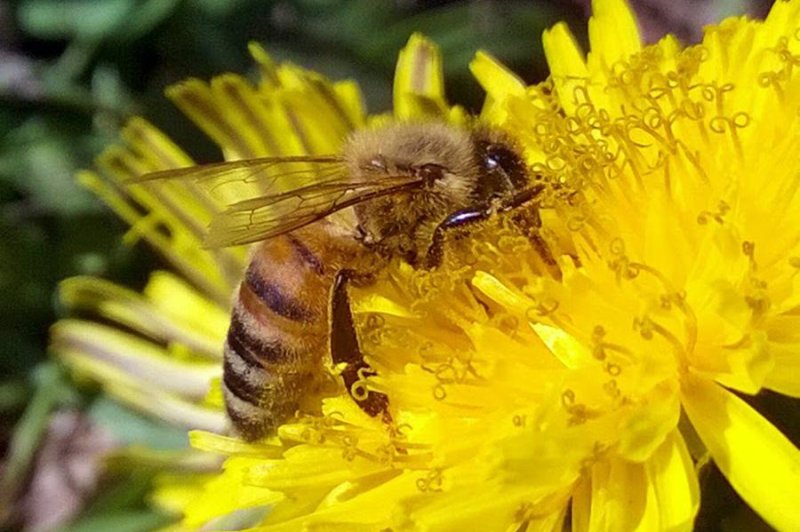1 of 2 | A lack of sufficient nutrition and exposure to pesticides are a deadly combination for honey bees, new research shows. Photo by Simone Tosi/UC San Diego
Dec. 20 (UPI) -- Lack of nutrition and exposure to pesticides are a deadly combination for honey bees, new research shows.
For the first time, scientists quantified the effects of the one-two punch on bee mortality. They published their findings this week in the journal Proceedings of the Royal Society B. The study's results showed bee mortality increased 50 percent when the two threats were combined.
The combination isn't hypothetical. It's the reality in many agricultural areas. Bees' traditional sources of nectar are rare on commercial cropland where pesticides are most common.
In their tests, researchers tested a clothianidin and thiamethoxam, two common neonicotinoid pesticides. A number of previous studies have detailed the threat neonicotinoids pose to pollinators.
"We tested the effects of different neonicotinoid pesticides because of a growing concern and evidence about negative effects of these pesticides on pollinators," Simone Tosi, a postdoctoral researcher at the University of California San Diego, said in a news release. "Our results provide the first demonstration that these stressors can synergistically interact and cause significant harm to animal survival."
Many surveys have detailed the ongoing decline of bee populations, pollinators essential to agricultural crops. The evidence suggests the two threats detailed in the latest study are getting worse. Pesticide exposure is increasing while populations of plants important to bees and other pollinators are declining.
Pesticides lower bees' blood sugar levels, and a lack of nutritious food sources prevents them from maintaining healthy blood sugar levels. The one-two punch severely lowers the pollinator's energy levels and harms their health.
"These findings should cause us to rethink our current pesticide risk assessment procedures, which, based upon our findings, may underestimate the toxic effects of pesticides on bees," said Tosi.
Researchers worry the one-two punch could prove harmful to, not just to bees, but also to a variety of other animals.















